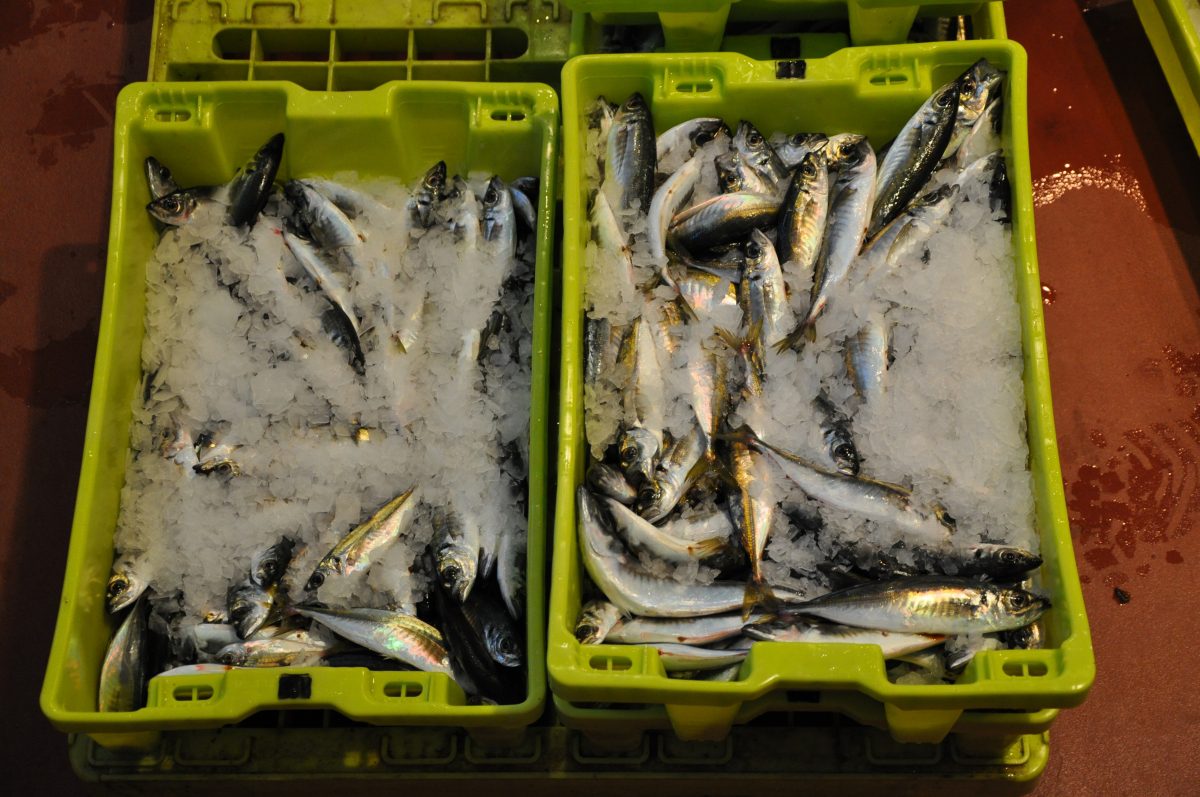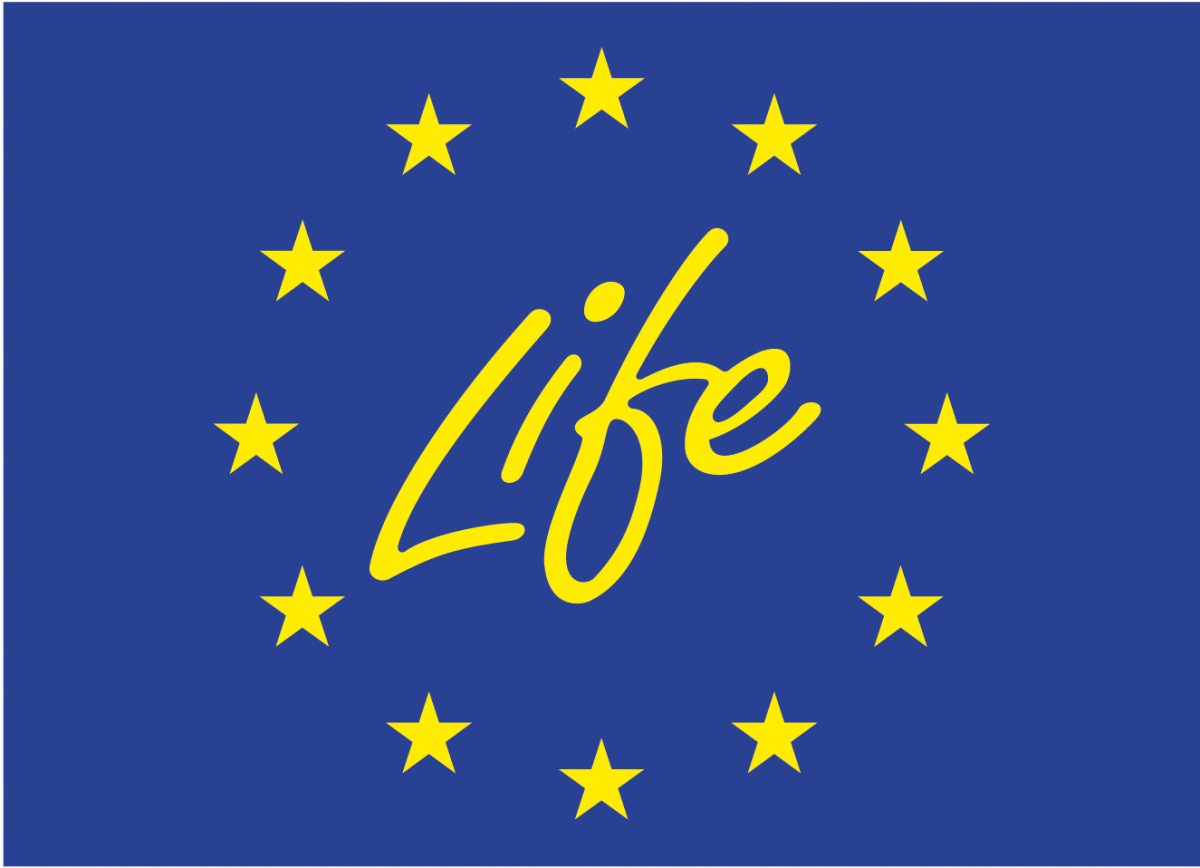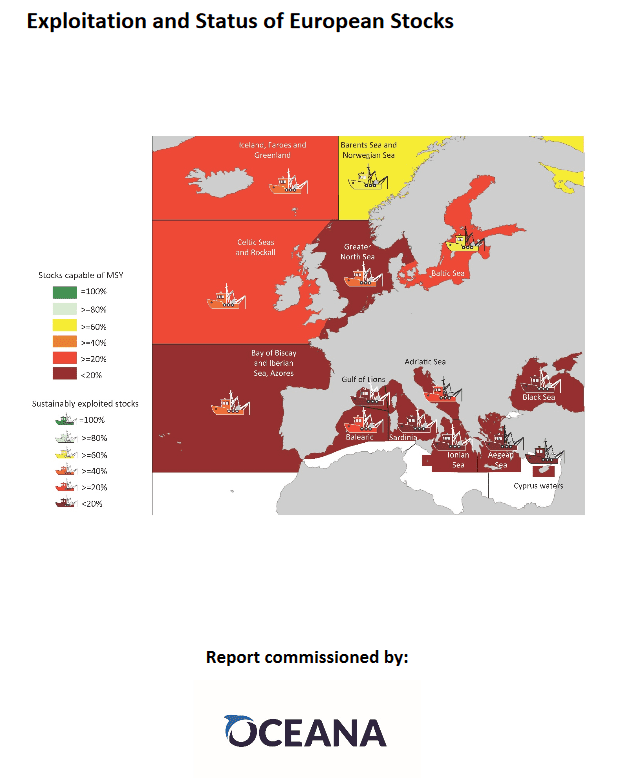Overview
To get the full picture of European fisheries, Oceana commissioned the most comprehensive scientific study ever made on the status of European fish stocks and their potential productivity if sustainably managed. The findings of this independent study confirms that only a minority of European stocks can be considered as well managed, and although there is serious cause for concern about the current state of fish stocks, the potential of stock recovery is huge.
The landmark report is crucial for establishing a comprehensive understanding of the status of European fisheries and in assessing the performance of commitments to the CFP, in particular the objective to end overfishing. However the political stance of the EU is neither in line with these principles nor with the critical condition of European fisheries. EU fisheries Ministers continue to disregard science to land bigger catches from declining stocks on the basis of short-sighted socioeconomic arguments.
Until now, assessments of the status of EU fisheries have been incomplete, covering a limited number of stocks and or regions, making it difficult to effectively evaluate the outcomes of fisheries management decisions. For first time ever, the results of the current study cover the majority of exploited stocks for which data is available, specifically 397 fish stocks of 120 species from all European ecoregions. Regrettably, the assessment concludes that the status of EU fisheries is far from being considered in a good condition. The report findings include:
-
85% of EU stocks are currently below healthy levels
-
64% of EU stocks are currently overfished
-
Sustainable fishing could increase EU fish catches by more than 57%

Stocks in danger
Stock biomass for most European stocks (85%) is well below the healthy levels that can produce sustainable high catches. Of particular concern is the status of more than half of the analysed stocks, 202 stocks (51%), for which the biomass lies outside safe biological limits and may therefore suffer from impaired reproduction. Among these, even more worrying is the status of 52 stocks (17%) that are in a severely depleted condition and threatened by collapse. The regions that show the highest percentage of stocks at healthy biomass levels are the Barents Sea and Norwegian Sea (67%), while shockingly, just 2.8% of the stocks in the European Mediterranean Sea have a healthy biomass.
Although fishing pressure has showed a decreased trend in some ecoregions during recent years, (mainly in certain Atlantic ecoregions) overfishing is still widespread and affects 254 European fish stocks (64%), jeopardizing the recovery of the stocks above healthy levels. The ecoregions that show the highest percentage of sustainably exploited stocks are the Barents and Norwegian Seas with 83%, while the Black Sea and the Mediterranean Sea have the lowest percentages of sustainably exploited stocks, with values around 15%.
The Common Fisheries Policy
Only 47 European fish stocks (12%) fulfill the legal Common Fisheries Policy requirement of a biomass above healthy levels (B>Bmsy) and fishing mortality not subject to overfishing (F<Fmsy). The remaining
350 stocks (88%) are either in a recovery towards these conditions or persist in a state of overexploitation. By ecoregions, the Barents Sea and Norwegian Sea have the highest percentage of stocks (50%) that comply with the goals of the CFP, while the Mediterranean Sea is the region the furthest away from CFP compliance, with less than 1% (1 stock out of in 169) in this condition. This situation means that current catches for most European stocks are taken from stocks smaller than their potential size and using unsustainable fishing pressure. There is an urgent need to reduce fishing pressure and restore stocks above healthy levels in the short term so that once recovered, the stocks can maximise their long-term catches.
Read the full report here
Oceana acknowledges the generous support of EU LIFE Programme

About the Author
Dr. Rainer Froese
Senior Scientist, Helmholtz Ocean Research Center GEOMAR (Kiel, Germany)
Together with Dr. Daniel Pauly, Dr. Froese created FishBase, the world’s most widely used biological information system, with more than half a million visitors every month. Since 1990, Dr. Froese has led and coordinated the FishBase project.
Dr. Froese is the author or co-author of over one hundred scientific publications on marine ecology.



